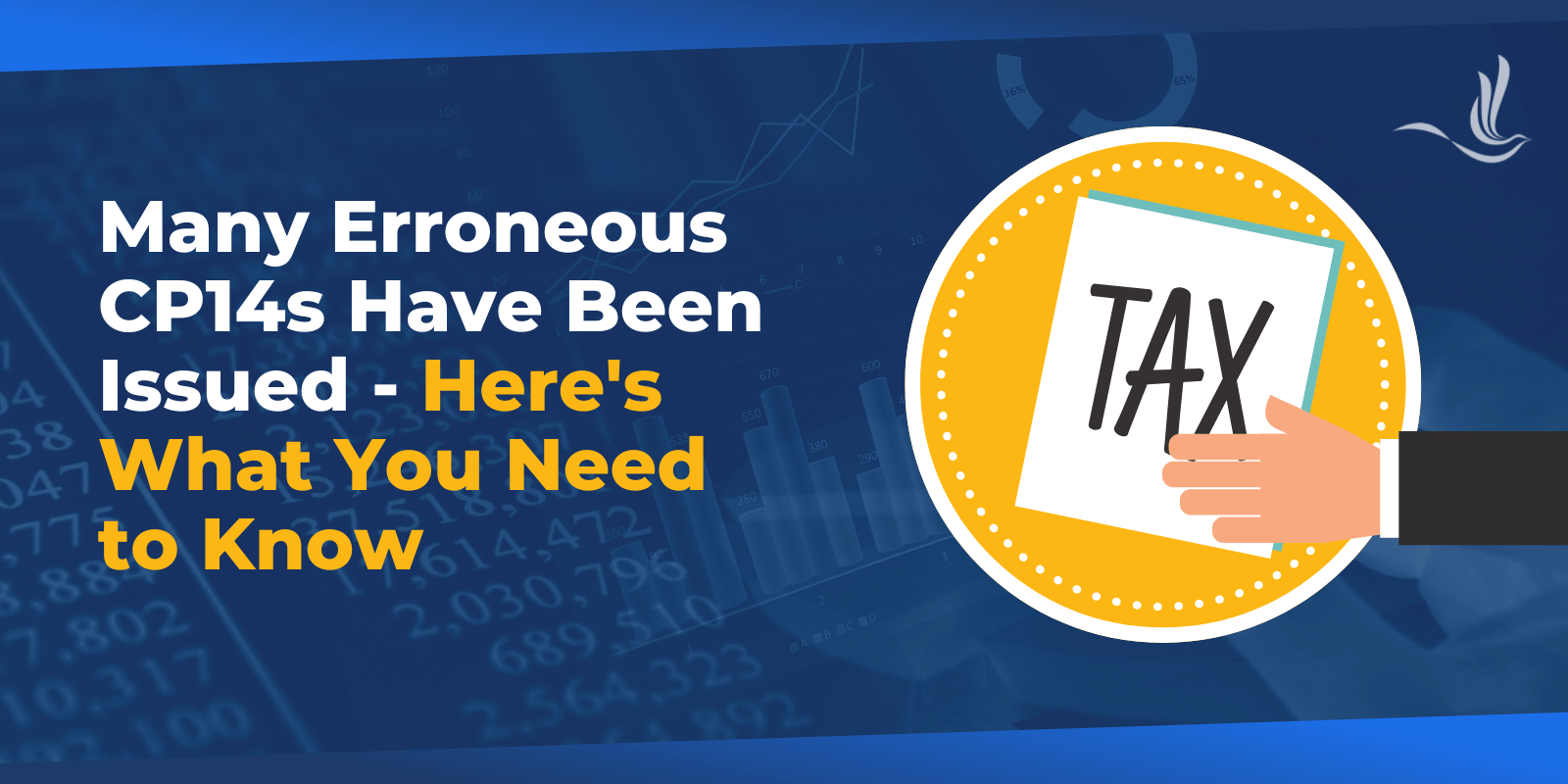
IRS Notice CP14 is sent to taxpayers to inform them of an outstanding balance on their federal tax account. It serves as a bill for unpaid taxes. It includes details such as the amount owed, accrued interest, and any penalties incurred. While receiving this notice might not be a shock for many, some taxpayers impacted by a declared disaster area may be surprised to see a CP14 in their mailbox despite IRS promises of tax relief. If you are one of these taxpayers who mistakenly received IRS Notice CP14 despite being in a disaster area, don’t panic. Many erroneous CP14s have been issued by the IRS. Here is what you need to know.
Which disaster areas qualify for automatic tax extensions?
The IRS has continued to issue automatic tax extensions to those impacted by natural disasters. These areas have included impacted counties of the following 12 states:
- California
- Florida
- Oklahoma
- Indiana
- Tennessee
- Arkansas
- Mississippi
- New York
- Georgia
- Alabama
It also includes the impacted areas of Guam and the Mariana Islands. A full list of impacted qualified disaster areas can be found at https://www.irs.gov/newsroom/tax-relief-in-disaster-situations. All taxpayers in impacted areas were automatically given an extension of time to file. They might’ve also received an extension to pay until October 16, 2023, or another form of tax relief.
Why did I receive a CP14 if I’m in a disaster area?
IRS Notice CP14s have been sent out because the IRS is legally required to if a balance is due. However, many Californian taxpayers living or working in disaster areas have received this notice which demands payment to the IRS within 21 days. Unfortunately for Californians impacted by disaster, this sends mixed messages. The IRS has issued guidance to let these taxpayers know that they do indeed have until October 16, 2023 to file and pay their 2022 taxes.
What should I do if I received a CP14 if I’m in a disaster area?
If you received IRS Notice CP14 but you have been given an automatic tax extension due to disaster relief, you do not need to worry about submitting payment within 21 days as the notice instructs. In fact, these letters should also include a specific insert stating that the payment date indicated in the letter does not apply to anyone covered by a disaster declaration, and that the disaster dates still apply.
While it may seem counter-intuitive, affected taxpayers do not need to call the IRS for confirmation. Doing so may result in extremely long wait times. The IRS has issued an apology for the confusion this has caused. At Optima, we understand how intimidating an IRS notice can be.
If You Need Tax Help, Contact Us Today for a Free Consultation